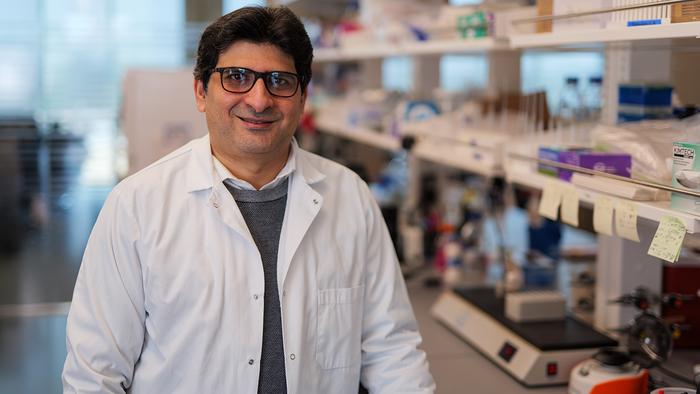In a groundbreaking study led by Ahmed Balboula, an assistant professor at the University of Missouri’s College of Agriculture, Food and Natural Resources, researchers are diving deep into the healing mechanisms within female eggs. This research aims to tackle a critical issue facing women of advanced reproductive age: the detrimental effects of DNA damage on egg quality. Such damage, often exacerbated by factors like ultraviolet radiation, toxins, and environmental stresses, is a primary contributor to infertility, miscarriages, and genetic disorders, including congenital conditions.
The process under investigation, known as autophagy, is a vital cellular mechanism responsible for maintaining cellular health. It allows cells to recycle damaged components, ensuring that essential biological processes remain efficient and functional. Balboula and his team discovered that the efficiency of autophagy significantly declines in female eggs that suffer from moderate to severe DNA damage, a condition more prevalent in older women.
The implications of this finding are profound. Balboula highlights that the decreased activity of autophagy in eggs with DNA damage contributes to an increase in aneuploidy. Aneuploidy refers to an abnormal chromosome number in a cell, which is the leading cause of pregnancy loss and congenital anomalies, including Down syndrome. This study unravels a critical link in understanding why women of advanced maternal age face heightened risks of reproductive challenges and birth defects.
Interestingly, the researchers did not only identify the problem but also proposed a potential solution. By stimulating autophagy within compromised female eggs, the team observed a marked improvement in egg quality. This enhancement was characterized by reduced levels of DNA damage and a decrease in the likelihood of aneuploidy—paving the way for significant advancements in reproductive health. Balboula’s work suggests that if autophagy can be effectively enhanced, it might serve as a powerful experimental avenue for ameliorating egg quality and improving fertility outcomes in both humans and animals.
The research team’s findings are not just academic; they have the potential to transform fertility therapies and approaches. By targeting the underlying mechanisms that lead to poor egg quality, fertility specialists and researchers may develop new treatments that can directly boost reproductive health. As Balboula mentions, the deactivation of autophagy is just one of many mechanisms contributing to the challenges in egg health, indicating a larger landscape of potential interventions waiting to be explored.
Relocating from the University of Cambridge to Missouri in 2019, Balboula was drawn by the university’s strong reputation in reproductive biology research. He emphasizes the plethora of resources and collaborative opportunities available at the University of Missouri that facilitate groundbreaking research initiatives. The research infrastructure, especially in the NextGen Precision Health building, equips Balboula and his team to leverage innovative approaches in their studies, thereby enhancing the significance and reach of their findings.
As the issue of reproductive health becomes increasingly pertinent in public health conversations, research like Balboula’s sheds light on the biological intricacies that underlie fertility challenges. The risks associated with increased DNA damage in full-grown oocytes signify a critical area of concern, demanding further investigation and scrutiny from the scientific community. As new technologies and methodologies emerge, it is crucial to understand how various factors affect cellular mechanisms to effectively address and potentially mitigate these risks.
Published in the prestigious journal Nature Communications, the study titled “Increased DNA damage in full-grown oocytes is correlated with diminished autophagy activation” represents a significant contribution to reproductive biology. The research was well-supported, receiving funding from the National Institutes of Health, which exemplifies the importance of this work within the scientific community.
Given the growing concern regarding infertility and related issues, Balboula’s research is timely. As scientific understanding evolves, it is essential to harness this knowledge in clinical settings to improve patient outcomes effectively. The potential to enhance egg quality through targeted stimulation of autophagy provides a promising avenue that warrants further exploration. As Balboula and his team continue their research, the prospect of improved reproductive health and fertility treatments looms on the horizon.
The findings from this study may set the stage for future innovations in reproductive medicine. If the mechanisms governing autophagy can be manipulated effectively, we might see a paradigm shift in how reproductive health issues are approached. The direct effect of autophagy on egg health opens doors for new experimental treatments that could benefit women across various age groups and health conditions.
Looking forward, Balboula plans to continue expanding on these findings, investigating other underlying mechanisms that contribute to poor egg quality. This continual exploration could yield critical insights not only into the aging process of oocytes but also into broader reproductive challenges that women face. As the dialogue around women’s health expands, foundational studies like these are crucial for guiding future research and clinical practices.
Subject of Research: Cells
Article Title: Increased DNA damage in full-grown oocytes is correlated with diminished autophagy activation
News Publication Date: 1-Nov-2024
Web References: http://dx.doi.org/10.1038/s41467-024-53559-w
References: National Institutes of Health
Image Credits: Credit: University of Missouri
Keywords: DNA damage, Eggs, Autophagy, Infertility, Miscarriage, Birth defects, Aneuploidy
Tags: advanced reproductive age challengesaneuploidy and pregnancy lossautophagy and cellular healthDNA damage in female eggseffects of environmental toxins on fertilitygenetic disorders in reproductionimplications of reproductive health studiesinfertility and miscarriagesmechanisms of egg healingReproductive complications in womenresearch on egg qualityUniversity of Missouri fertility research





